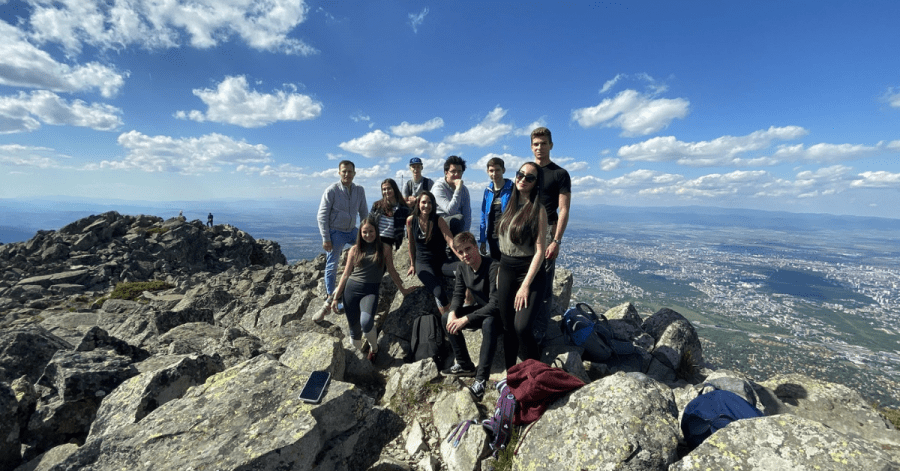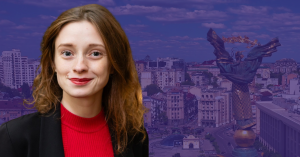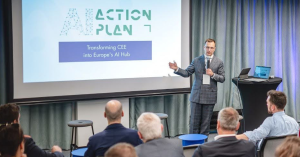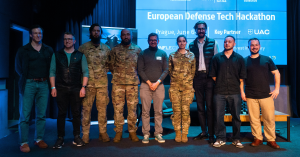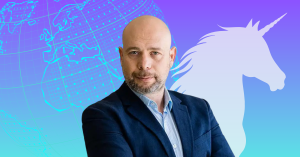For the fourth year in a row, the program that connects high school future entrepreneurs with mentors from the Bulgarian startup ecosystem, Teenovator, will help students from the 11th and 12th grade learn how to start their own businesses. Throughout the period of one school year, from October to June, students meet with their mentors once a week to gain the necessary skills and knowledge to turn their hobbies and passions into working businesses that solve real social problems. From the young mentors, it is expected that they will share their personal experience in the business world and teach the students the lessons that they have learned in both their successes and failures.
This year, the program will take place in a hybrid format and is currently looking for mentors under the age of 40 who feel motivated to pay forward and share their business knowledge with the future entrepreneurs of the Bulgarian ecosystem. Mentors can apply before the 1st of October 2021 and should be able to join the online training program for mentors at the beginning of October.
Mentors in the program are young people from the startup ecosystem who are usually part of VC funds, are founders themselves, or work as freelancers. Last year, a record number of 29 mentors from all over Bulgaria took part in the program which took place entirely online. Among the team of mentors were Iskren Mitev, co-founder of ESCREO, Ivaylo Bonev, founder of the platform for interactive learning Technokrati, and Gergana Stoichkova, Program Manager at Eleven Ventures. The Recursive team reached out to Stoichkova to find out more about her experience as a mentor.
What is it like to be a Teenovator mentor?
Stoichkova, who was a mentor in the third season of Teenovator, and will again participate in the upcoming fourth season, shares that before applying for a mentor, she already had a lot of acquaintances and friends who were involved in the program. “I didn’t join the program so much because of them but because I knew I was going to like it. I was looking for something meaningful that I can do with my extra time, as some form of a cause that I can contribute to on a voluntary basis,” she says.
Even though Stoichkova has had a mentoring experience as part of the 180 Degrees Consulting, the world’s largest student-driven consultancy, her experience in Teenovator was completely different. This is because mentoring university students and young adults is by no means similar to mentoring high school students.
“In the beginning, it feels strange to be a mentor if you have no previous experience in working with teenagers. It is funny because before I started mentoring at Teenovator, I was thinking that spiritually I am 17, and after the program, this self-perception changed,” Stoichkova says.
During her first meetings with the students, she realized that the role entails some form of responsibility and presupposes that your actions and words can really make an impact on the mentees. “Therefore, I was really careful about what I say and do in front of them. This, of course, was a challenge but at the same time it was a valuable learning lesson as I constantly had to think about how to motivate the students, how to talk their language, and shorten the distance between us,” she remarks.
Together with her co-mentor, Iskren Mitev, Stoichkova wanted to win both the respect of the students and their trust that they can learn something truly valuable. Usually, co-mentors are paired randomly and they decide between each other how to coordinate the meetings and tasks between each other. Gergana and Iskren chose to always work in sync and lead the meetings together. “We have very contrasting perspectives and because of that it was useful for the students to hear our differentiating viewpoints,” she points out.
The mentor’s learning experience
The program consists of around 30-40 topics that cover the full spectrum of the business lifecycle. The first half cover soft skills and the other half are all about developing a business. This year, the whole content will be developed by people from the local ecosystem, unlike the previous three years when the content was developed by a Checzh team according to the Stanford methodology.
According to Stoitchkova, all mentors will have access to a platform where the topics for each class are described in a logical manner. In the beginning, the focus is on developing soft skills and teaching the students that failure is acceptable. Through various exercises, interactive assignments, and games, they are encouraged to go out of their comfort zones and talk with various stakeholders and people in the streets.
“Most of the lessons can be individually adapted to the personalities and expertise of the mentors which gives us a good amount of flexibility. For example, on topics such as pitch deck, sales, marketing, investors presentations, I decided that it would be most valuable if I give them the knowledge that I have gained.
Timewise, the mentorship takes around 3 hours per week depending on the topics that are discussed each week. Stoichkova shares that in addition to the hourly meetings with students she usually spared around one hour in preparation to structure the lesson. Regarding her expectations about the upcoming season, she shares:
“It is normal that compared to the previous season, I would face fewer challenges, but this also means that I won’t learn as many new things as I did previously. That is why I am consciously trying to reduce my expectations about my personal development this season. On the other hand, I expect that I will be a better and more experienced mentor for my future team and will be of greater value for their development,” she concludes.

